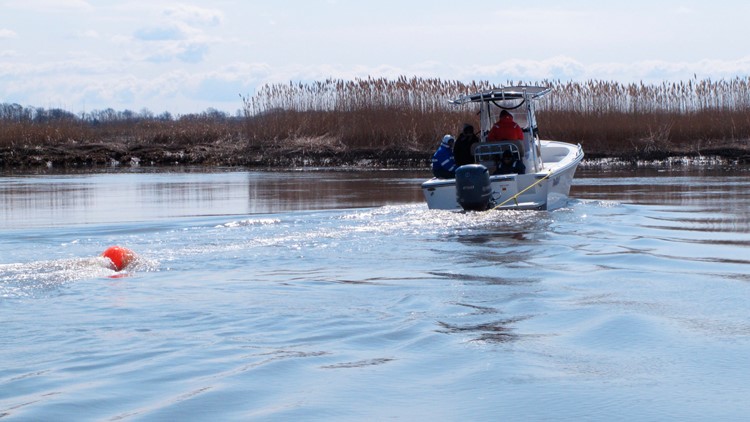A dangerous flesh-eating bacteria may be linked to warmer water temperatures and climate change, according to a new study.
CBS News reports Vibrio vulnificus infections, which are spread by handling or eating contaminated shellfish, have been on the rise at some popular East Coast beaches -- far from where they are most often located. The bacteria is normally found in salty or brackish waters with surface temperatures higher than 55 degrees. Historically, it has been more commonly seen between May and October off the Gulf Coast of states like Texas and Louisiana.
According to the Centers for Disease Control and Prevention, people with compromised immune systems or liver disease are more likely to get infections and suffer from serious complications. The CDC estimates roughly 205 people get infected each year in the U.S.
Health officials say symptoms of Vibrio vulnificus infections include low blood pressure, suddenly declining health conditions, diarrhea, vomiting, stomach cramps, fevers, nausea, skin infections, chills, fevers and blistering skin lesions. If you develop such symptoms, you should contact a doctor right away.
The CDC says people who get the infection can become seriously ill and even need limb amputations. Federal officials estimate one in seven people die from such infections.
According to CNN, five cases have been tied to Delaware Bay near New Jersey in the last two years -- reinforcing the idea that the bacteria is drawn to warmer water and also suggesting it's spreading outside its normal geographical area. CNN says the hospital that treated the five patients had previously only seen one severe case of the infection in an eight-year period. Then, five patients arrived in two years, and one of them died.
The study's authors suggest rising sea surface temperatures have offered more favorable conditions to the bacteria, leading to increased concerns for the public.
What other people are reading right now:
- Nearly half of young people aren't using deodorant, poll finds
- Mom charged with homicide nearly a decade after 4-year-old girl's death
- New Jersey man found dead in the Dominican Republic; 9th American tourist to die in country
- Hernando County pizza restaurant customers may have been exposed to hepatitis A
- Acting defense secretary explains why he withdrew from leading Pentagon
►Make it easy to keep up-to-date with more stories like this. Download the 10News app now.
Have a news tip? Email desk@wtsp.com, or visit our Facebook page or Twitter feed.



